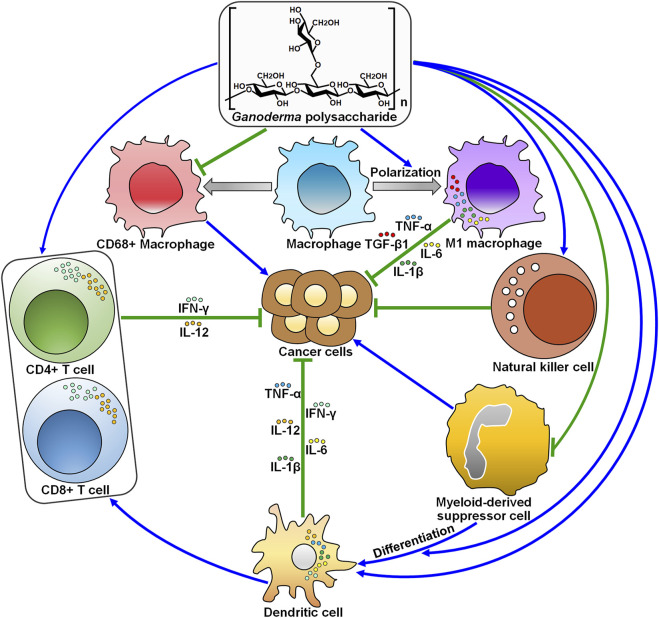FIGURE 2.
The roles of Ganoderma polysaccharides in modifying antitumor immunity. Ganoderma polysaccharides inhibit the proliferation of pro-inflammatory CD68+ macrophages, while they promote macrophage polarization toward the antitumoral M1 phenotype. Ganoderma polysaccharides can enhance the cytotoxic activity of natural killer cells. Ganoderma polysaccharides suppress the accumulation of myeloid-derived suppressor cells and foster their differentiation into mature dendritic cells. On the other hand, Ganoderma polysaccharides directly activate dendritic cells and favor the production of cytokines (e.g., IL-1β, IL-6, IL-12, IFN-γ, and TNF-α). Dendritic cells then present cancer-specific antigens to CD4+ T cells, thus recruiting CD8+ T cells to eliminate cancer cells. IFN-γ, interferon-γ; IL-12, interleukin-12; TNF-α, tumor necrosis factor-α; TGF-β1, transforming growth factor-β1; IL-6, interleukin-6; IL-1β, interleukin-1β.

